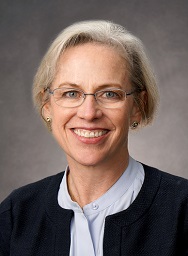As the population ages and consumer demands for high quality health care grows, the role of Advanced Practice Providers (APP) has expanded across the health care spectrum into areas such as medical practices, hospitals, surgery centers, retail clinics and urgent care centers throughout the country.
While there is a strong likelihood that you or a family member have been seen and treated by an APP, many people still do not understand the role and scope of services these highly trained health care professionals provide.
An Advanced Practice Provider refers to a clinical provider who is not a physician, but who has undergone specialized education, training, certification, and licensure that allows her/him to provide health care related services. APPs provide patient-centered care for a wide range of acute and chronic health care problems, as well as preventive health care services.
There are different types of APPs including Advanced Practice Nurses (APN) and Physician Assistants (PA). APPs provide care in a variety of primary and specialty care settings where they are responsible for the assessment, diagnosis, and management of patient problems, including the use of pharmacologic and non-pharmacologic treatments. APPs work collaboratively with their physician colleagues and are valuable members of the health care team.
An Advanced Practice Nurse (APN) is a registered nurse with advanced education, clinical experience, knowledge and skills. These practitioners typically fall into one of four categories, all of whom hold a master’s or doctoral degree in a specialized area of nursing practice in addition to a bachelor’s degree in nursing.
A Certified Nurse Practitioner (CNP) is one type of APN that serves as a primary and, in some cases, specialty care provider diagnosing and treating a variety of illnesses. In addition, CNPs focus on health promotion and disease prevention while working in partnership with their patients and families to improve their health. Certified Registered Nurse Anesthetists (CRNA) work primarily in hospitals and health care institutions and provide care and advice related to the delivery of anesthesia before, during, and after surgical, diagnostic, therapeutic, and obstetrical procedures. Certified Nurse-Midwives (CNM) provide primary care with a focus on women’s health services, including family planning, gynecological exams, prenatal care, labor and delivery, and newborn care. The fourth type are Clinical Nurse Specialists (CNS) who provide expert patient care in a wide variety of health care settings, to a diverse patient population. In addition to providing direct patient care, a CNS provides educational support to the bedside nurse and helps change practices based on evidence to ensure the best outcomes for patients.
Physician Assistants (PA) are another type of Advanced Practice Providers. They are certified and licensed health care professionals and credentialed to practice in a wide variety of health care settings. In addition to a bachelor’s degree, PAs obtain master’s level training. Many PA training programs require previous health care shadowing experience prior to acceptance in the program.
As part of their comprehensive responsibilities, PAs conduct physical exams, diagnose and treat illnesses, order and interpret tests, counsel on preventive health care, assist in surgery and prescribe medication. Within the Physician-PA relationship, PAs exercise autonomy in medical decision making and provide a broad range of diagnostic and therapeutic services.
The benefits of having APPs as members of the health care team are numerous. Studies have suggested that APPs enhance the services provided by health care practices and organizations. These enhancements are related to safety, quality, efficiency, continuity of care, patient experience and satisfaction. By working collaboratively with physicians, APPs increase the number of providers available to manage patient care and improve access to care.
The next time you require the services of a health care provider, whether it be a physician or an Advanced Practice Provider, you can be assured you are receiving excellent care from a highly skilled team of health care professionals.
Eileen F. Campbell, MSN, APN is the Assistant Vice President of Advanced Practice Providers and Patient Care Services at Cooper. She is also an Advanced Practice Nurse in Cooper’s Department of Emergency Medicine.

